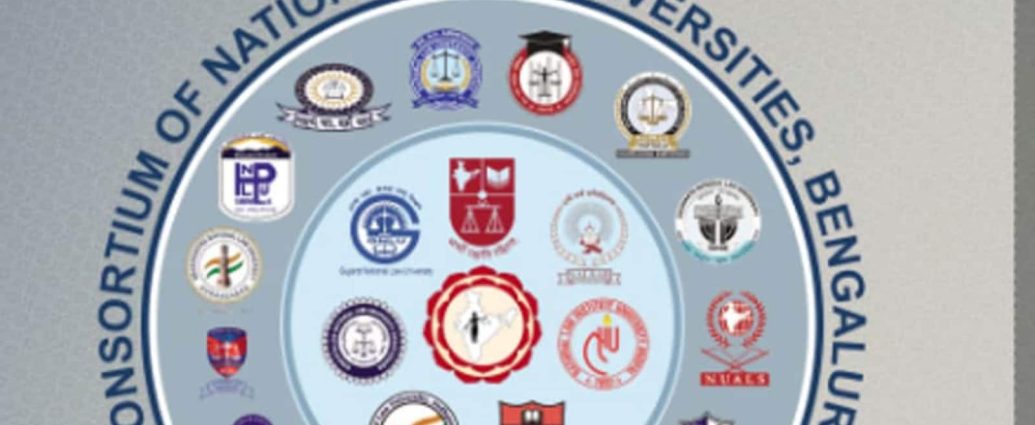CLAT 2022: The Common Law Admission Test 2022, also known as CLAT, conducted by NLSIU has been finalized to be on 18th of December 2022. It is an aptitude-based exam where the intent is to test the student’s interest towards law and not necessarily their knowledge of law. A degree in law has gained popularity over the last few decades. What makes CLAT a popular exam amongst the students is it being a stream neutral exam. Students from all streams, science, commerce or humanities are eligible to sit for the exam. In addition, Law as a career is lucrative option owing to the opportunities and respect from society it holds in store for a law aspirant.
Year 2020 onwards, to test the interest of students’ towards law, the CLAT consortium has come up with a new pattern wherein the student’s reading and comprehending skills are extensively tested. These skills are imperative for budding law aspirants.
CLAT comprises of 5 sections, namely English Language, Current Affairs including General Knowledge, Legal Aptitude, Logical Reasoning and Quantitative Techniques, each section requiring a different approach. However, one thing that stays uniform throughout the five sections are your Reading and Comprehension skills.
Section-wise strategy
It is recommended that one should develop a reading habit. Read editorials and newspapers every day and focus more on reading through Socio-legal issues among the other things. Always trust only the reputed and credible media houses for news. If that is something you have not been doing already, it is recommended to create a repository of the important editorial articles from the past one year and scan them thoroughly.
With CLAT being a UG course examination consisting of topics such as General Knowledge, English, Mathematics, Legal Aptitude, and Reasoning.
An aspirant appearing for the UG examination needs to focus on the following topics-
Quantitative Techniques: Basic Algebra, Menstruation, Statistical Estimation, Graphs, Numerical Information, Ratio, and Proportion, etc.
English language: Passages, Reading, Comprehension, Inference, and Conclusion, Summary, Vocabulary, etc.
General Knowledge & Current Affairs: Contemporary events of National and International Significance, Arts and Culture, International Affairs, Historical Events of significance.
Legal Aptitude: Rules and passages of law, application of the rules and passages, etc.
Logical Reasoning: Argument- Premise and Conclusion, Inference, Relationships and Analogies, Contradictions and Equivalence, etc.
For the aspirants appearing for PG course examination, the syllabus is as follows-
Constitutional Law- Subject-wise and Judicial Power; Constitution of India: Framing, Doctrine, Executive Power; Constitutional Rights; Freedom Rights
Criminal Law- Elements of Crime, Group Liability, Abetment, Criminal Conspiracy, Exceptions, Attempt to Commit Offences, Offences against Public Tranquility, Offences against Body
Law of Torts- Classification of Torts, Trespass, Nuisance, Defamation, Liability for Misstatements, Negligence
International Law- Origin and Development of International Law and Bodies, International Law of Sea, Air, Land, Overview of International Law
Intellectual Property Rights- Nature, Definition and Scope of IPR, Trademarks Act 1999, Patents Act 1970, Copyright Act 1957, IPR in International Perspective
Tips to ace through CLAT 2022
The following expert tips will certainly guide any law aspirant in their journey of achieving their goal –
1. Strategical Planning – Strategical planning helps in prioritizing the subjects and topics requiring more attention than the others as per the learning style of each individual. With hardly 3 weeks left, continuous revisions are a must.
2. Effective time management – As the objective of the aptitude test is to check the articulate thinking, it is not advisable to compulsorily attempt all the questions. Instead one should focus on maximizing the scores by attempting the questions to which they know the answer. In fact, sometimes this urge to attempt all the questions can bring your accuracy-level down drastically due to the timing pressure.
3. Regular Practice – Any entrance exam preparation requires regular practice. An aspirant should target to attempt the questions with 80-90% accuracy. When you practice, you must try to identify the question types within each section that you are good at, and those that you are not good at. This will help you save time on the actual exam. Current Affairs is always a make-or-break section for everyone.
4. Mock tests and analysis – Good mock test series consists of diligently made mock examinations for CLAT providing a real time experience. It is very important to work constantly on improving vocabulary and learning current affairs. This will help you enhance your score.
Although, these are some standard tips, you can always modify this strategy based on your performance in the Mock Tests. The ideal way to practice questions and assess your preparation is through the help of Mock Tests. Prepare for all these sections and attempt as many mocks as you can. One should analyse their mocks post attempt and modify their strategy accordingly.
One must identify the grey areas as soon as possible. Identify your strong and weak subjects. Don’t categorize a subject as your strong or weak based on how much you enjoy studying it, but on the basis of how much you score in them. The sample size should be reasonable enough to determine a pattern. It cannot be based on just a mock or two. Once identified, allocate more time to your weak areas without ignoring your strong sections.
(Author Ankit Kapoor is Director, Pratham Test Prep. Views expressed here are personal.)
